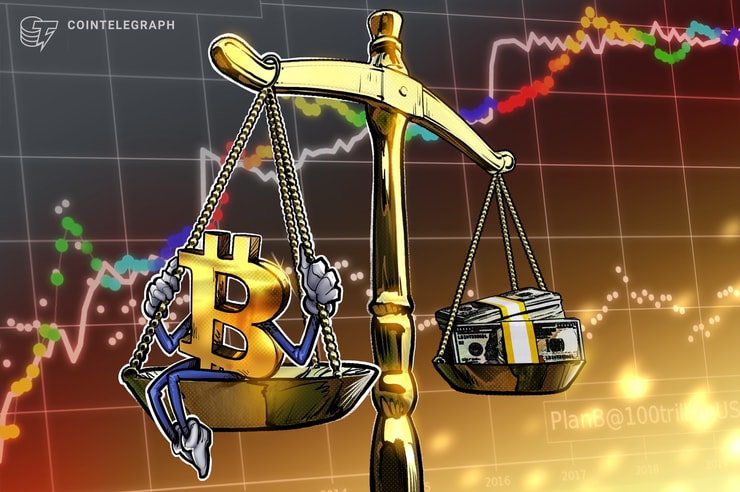Battle of bitcoin and banks

Introduction: As Bitcoin continues to assert itself as a transformative force in the financial landscape, a question looms large: could it eventually replace traditional banks? While Bitcoin and other cryptocurrencies have disrupted conventional financial systems, it's essential to delve into the dynamics, challenges, and potential scenarios that could shape the future of banking in the age of decentralized digital currencies. ## **
1. The Rise of Bitcoin: A Decentralized Revolution** ### 1.1 The Genesis of Bitcoin Bitcoin, introduced in 2009 by an unknown entity using the pseudonym Satoshi Nakamoto, was conceived as a decentralized alternative to traditional fiat currencies. Operating on a blockchain—a distributed ledger technology—it aimed to eliminate the need for intermediaries, including banks, in financial transactions. ### 1.2 The Advantages of Decentralization One of Bitcoin's key strengths lies in its decentralized nature. Unlike traditional banking systems that rely on central authorities, Bitcoin operates on a peer-to-peer network, allowing users to transact directly without intermediaries. This decentralized architecture promises increased transparency, reduced fees, and greater financial inclusivity. ## **
2. Challenges to Traditional Banking Systems** ### 2.1 Limited Accessibility Traditional banking services are not universally accessible, particularly in regions with underdeveloped financial infrastructures. Bitcoin, being decentralized and accessible via the internet, has the potential to provide financial services to the unbanked and underbanked populations. ### 2.2 Cross-Border Transactions Bitcoin's borderless nature facilitates frictionless cross-border transactions. In contrast, traditional international transfers often involve multiple intermediaries, resulting in delays and added costs. Bitcoin's ability to streamline cross-border payments is a notable advantage. ### 2.3 Reduced Transaction Costs Traditional banking transactions often incur fees for various services, from wire transfers to currency exchanges. Bitcoin transactions, especially in peer-to-peer transactions, can significantly reduce these costs, making it an appealing alternative for users seeking more economical financial solutions. ## **
3. The Potential Disruption to Banks** ### 3.1 Banking the Unbanked Bitcoin's decentralized nature could play a pivotal role in bringing financial services to the millions of people worldwide who lack access to traditional banking. Through mobile devices and internet connectivity, individuals can participate in the global economy without relying on conventional banking infrastructure. ### 3.2 Financial Sovereignty Bitcoin's appeal lies in its promise of financial sovereignty. Users have control over their private keys, providing a level of autonomy not achievable in traditional banking systems. This aspect is particularly relevant in regions where political and economic instability may threaten individual financial assets. ### 3.3 Security and Anonymity The cryptographic underpinnings of Bitcoin provide a high level of security and, to some extent, anonymity. Traditional banking systems are susceptible to cyber threats and data breaches, and Bitcoin's decentralized model offers an alternative that minimizes such risks. ## **
4. Regulatory Hurdles and Legal Challenges** ### 4.1 Regulatory Uncertainty Governments and regulatory bodies worldwide are grappling with the integration of cryptocurrencies into existing financial frameworks. Regulatory uncertainty remains a significant challenge for the widespread adoption of Bitcoin as a replacement for traditional banking. ### 4.2 Legal Compliance Banks adhere to a myriad of regulations to ensure transparency, prevent money laundering, and protect consumers. For Bitcoin to replace banks, it must navigate complex legal landscapes and demonstrate a capacity to comply with evolving regulatory standards. ## **
5. Volatility and Stability Concerns** ### 5.1 Price Volatility Bitcoin's price volatility has been a persistent concern, making it a less stable store of value compared to traditional currencies. Stability is a critical factor for a currency to function effectively, and Bitcoin's fluctuating value poses challenges for its role as a mainstream replacement for traditional banking. ### 5.2 Institutional Adoption For Bitcoin to replace banks, it would need widespread adoption by institutions and businesses. While there is increasing institutional interest and investment in cryptocurrencies, the majority of financial transactions, lending, and investment activities are still conducted in traditional fiat currencies. ## **
6. The Role of Central Bank Digital Currencies (CBDCs)** ### 6.1 CBDCs as a Middle Ground Central banks around the world are exploring the concept of Central Bank Digital Currencies (CBDCs). These digital currencies issued by central authorities combine some aspects of decentralized cryptocurrencies with the oversight and regulation provided by traditional banking systems. CBDCs could represent a middle ground between the advantages of Bitcoin and the stability of traditional fiat currencies. ### 6.2 Integrating Bitcoin with CBDCs An alternative scenario involves the integration of Bitcoin into a financial system where CBDCs coexist with traditional banking. This hybrid model could combine the strengths of decentralization, financial inclusivity, and reduced transaction costs with the stability and regulatory oversight provided by central banks. ## **Conclusion: The Evolutionary Path Ahead** While the idea of Bitcoin entirely replacing traditional banks remains speculative, its impact on the financial landscape cannot be ignored. Bitcoin has demonstrated the potential to address some of the shortcomings of traditional banking systems, particularly in terms of accessibility, cross-border transactions, and financial sovereignty. However, significant hurdles, including regulatory challenges, price volatility, and the need for widespread institutional adoption, must be overcome for Bitcoin to become a mainstream replacement for banks. The emergence of Central Bank Digital Currencies adds a layer of complexity to the narrative, introducing the possibility of a hybrid financial system. As the financial ecosystem continues to evolve, the future role of Bitcoin remains uncertain. Whether it fully replaces traditional banks or coexists within a broader financial framework, Bitcoin's journey is undeniably shaping the conversation around the future of money and financial systems. Only time will reveal the extent of its transformative potential in the global financial landscape.








































